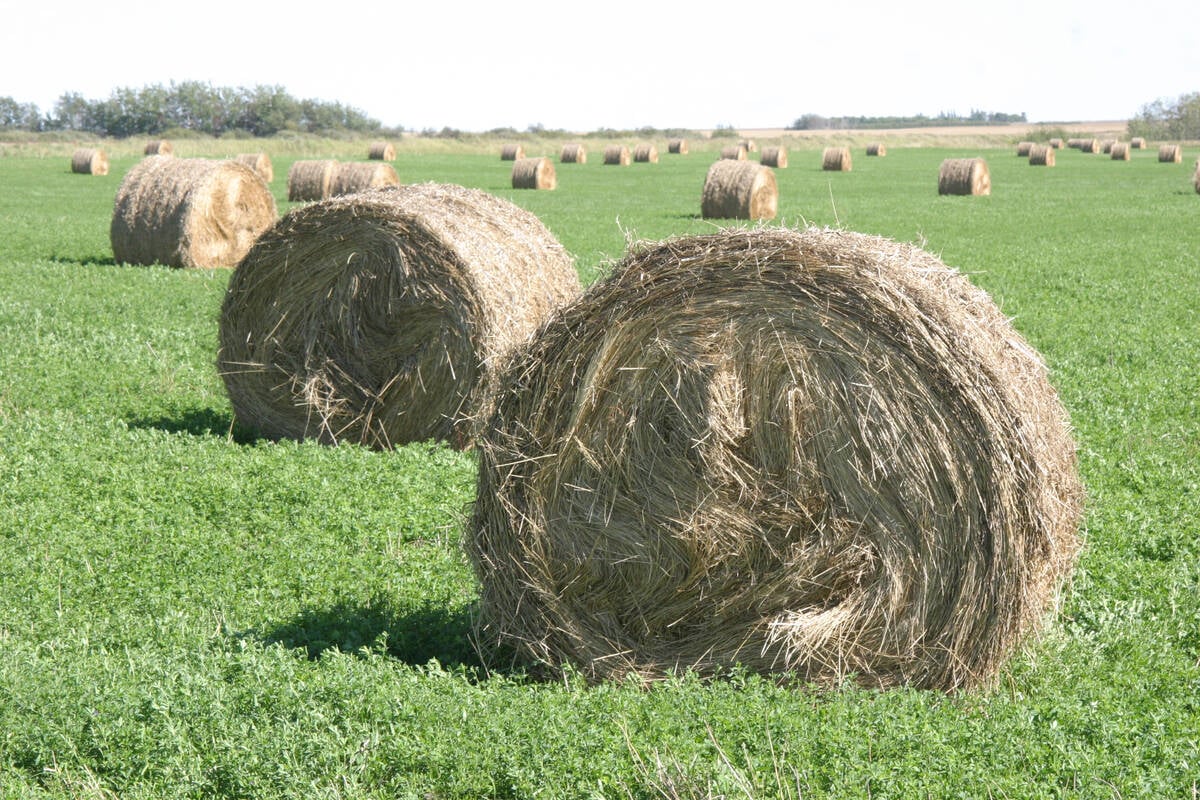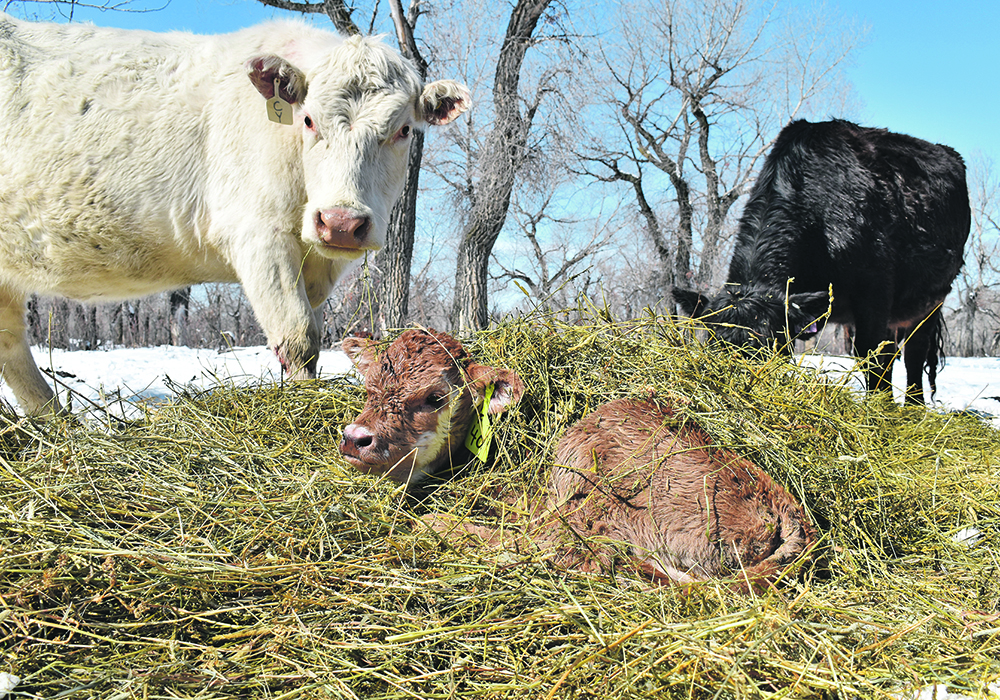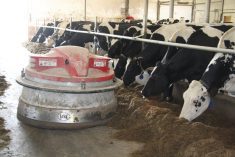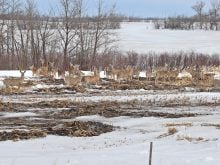I want to talk about two potential threats in Canada — foot-and-mouth disease and African swine fever. Both possess huge threats from an animal health perspective.
There is no doubt COVID-19 has made the average consumer more aware of how viral transmission occurs, plus the steps we can take to mitigate its spread.
The amount of disinfection we need to be diligent about, such as washing hands and clothes and trying to maintain social distancing, are great rules with all communicable diseases involving humans and animals.
Read Also

Breaking down successful winter feeding into six steps
It’s that time of year when it is important to start planning for a cow herd’s winter feeding program. Here are six steps I think are necessary to consider when getting your feed tested.
We obviously can’t have animals wearing masks but you can see how this cuts down the spread by minimizing the droplets being spread through the air.
Direct contact, such as shaking hands, can easily spread the virus, which is similar to the way cattle rub against each other, groom each other, and share feed bunks and watering bowls.
Agriculture and food production are deemed an essential service so it is critical that we keep operating.
It is also critical that we protect our employees from one another, and from the livestock, in the case of zoonotic diseases.
Remember that as much as we want to clearly avoid animal-to-human spread, there is also human-to-animal spread, and then back again.
That has been evident with COVID19. Humans have passed COVID-19 to mink, which are very susceptible and then they spread it among themselves and in turn, pass it back to humans. We are pretty fortunate that most organisms that could cause cattle or pig-type pandemics such as foot-and-mouth disease or ASF do not transmit to humans.
People can now understand why the Canadian Food Inspection Agency wants to crack down at the border when illegal meat is brought into Canada.
As with COVID-19, a vaccination is likely how a disease like foot-and-mouth disease would be controlled if the spread became too great, too fast.
Canada is a big country, but there are few places in the world where the concentration of cattle is as high as feedlot alley in southern Alberta. In the event of an outbreak, areas of infected, restricted and security zones would be set up. Movement of livestock would be controlled, which would particularly affect cattle. For other species, movement is often limited to once, when the animals are sent to slaughter facilities.
As with COVID in people, we want to limit movement in livestock and minimize touch points. Sharing of equipment, movement of livestock between premises and sharing of workers all come with risks of spreading disease.
As primary producers, we need to act responsibly. We may be pretty spread out on most farms, but we still come together to get the morning’s instruction or during breaks and lunch.
Processing cattle, showing cattle or on-farm auctions are all places where animals come into close contact and are exposed for a long period of time. All indoor functions should be mask-only for now.
For example, during calving season we don’t want neighbours coming around. The potential is too great for calf scours to spread. As well, we won’t share equipment and won’t tour someone through the facility.
It is common sense to prevent the spread of infectious organisms.
In the case of scours, it is the infectious organisms on our boots, coveralls and hands that can create problems. It is also spread on the tires of the equipment.
Currently, there is a group doing some planning on how we would proceed and mitigate problems if a real outbreak happened in food-producing animals. This working group goes under AHEM, which stands for Animal Health Emergency Management Project. You can find lots of information at animalhealth.ca. They have producer handbooks available with lots of good information and they host helpful webinars on what your role on farm would be in the event of an outbreak.
It also outlines the collaboration necessary with field vets and CFIA in dealing with these foreign animal diseases.
There are many lessons we can learn from the COVID-19 pandemic and apply them to prevent or quickly shut down an animal disease outbreak.
In the future, I would request even tighter security and serious fines for the illegal importation of meat and meat products.
Let’s all be model citizens and lead by example by promoting good biosecurity practices.
Have a safe and isolated Christmas and New Year’s Day.















